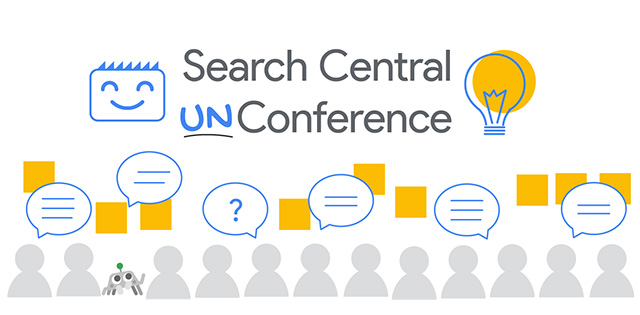
Google is rolling out its third version of the product reviews update, named the March 2022 Product Reviews Update. The previous two versions were the April 2021 Product Reviews Update and the December 2021 Product Reviews Update. The March version was updated to incorporate more signals and criteria in this niche ranking algorithm.
Google started to roll out the March 2022 product reviews update yesterday, March 23, 2023 at about 12:00pm ET. This impacts only English-language pages for now but Google hinted this can rollout to other languages soon, possibly before another official product reviews update. Google wrote “we plan to open up product review support for more languages.”
Google also said it will take about three weeks to complete and can impact “product reviews across many sites” – “many sites” Google said. So like previous product reviews updates, sites hit by this, can feel this in a big way.
As a reminder, the product reviews update aims at rewarding high-level product review content, above thinner product review content. Product review updates are not core updates, but they may be mistaken as such.
This latest version “builds on that work to enhance our ability to identify high quality product reviews,” Google wrote. Google added “this will make it easier for us to get sound purchasing advice in front of users, and to reward creators who are earnest in being helpful.”
Currently, at the time of publishing this – I am seeing very little movement in the Google search results. I suspect that will change any moment now but the SEO industry chatter is quiet on ranking changes right now and the tracking tools have yet to pick up on any volatility. Again, I expect this to change soon, very soon.
Google Product Reviews Update Quick Facts
Here are the most important things that we know right now in short form:
- Name: Google March 2022 Product Reviews Update
- Launched: March 23, 2022 at around 12:00pm ET
- Rollout: It will take about three weeks to fully rollout
- Targets: It looks at product review content
- Penalty: It is not a penalty, it promotes or rewards “insightful analysis and original research.”
- Not a core update: Many are going to say this is a core update, it is not.
- English Language but will expand: This is only looking at English-language content right now but likely will expand soon to other languages, this is a global launch.
- Impact: Google would not tell me what percentage of queries or searches were impacted by this update.
- Discover: This update can impact your performance in Google Discover, Google previously said.
- Recover: If you were hit by this, then you will need to look at your content and see if you can do better with Google’s advice below
- Refreshes: Google will do periodic refreshes to this algorithm but may not communicate those updates in the future. This may be the first refresh that Google has done, it is the first refresh Google communicated about.
What’s New With The March 2022 Product Reviews Update
Google said “we’re launching another update that builds on that work to enhance our ability to identify high quality product reviews. This will make it easier for us to get sound purchasing advice in front of users, and to reward creators who are earnest in being helpful.”
Also the fact that this may work in non-English languages in the future is new.
Google released three new FAQs with this announcement:
(1) Are product review updates relevant to ranked lists and comparison reviews? Yes. Product review updates apply to all forms of review content. The best practices Google shared also apply. However, due to the shorter nature of ranked lists, you may want to demonstrate expertise and reinforce authenticity in a more concise way. Citing pertinent results and including original images from tests you performed with the product can be good ways to do this.
(2) Are there any recommendations for reviews recommending “best” products? If you recommend a product as the best overall or the best for a certain purpose, be sure to share with the reader why you consider that product the best. What sets the product apart from others in the market? Why is the product particularly suited for its recommended purpose? Be sure to include supporting first-hand evidence.
(3) If I create a review that covers multiple products, should I still create reviews for the products individually? It can be effective to write a high quality ranked list of related products in combination with in-depth single-product reviews for each recommended product. If you write both, make sure there is enough useful content in the ranked list for it to stand on its own.
Google also posted this graphic showing that product review lists can be impacted by this as well:

Google also listed these four points about the criteria Google uses for product reviews:
- Include helpful in-depth details, like the benefits or drawbacks of a certain item, specifics on how a product performs or how the product differs from previous versions
- Come from people who have actually used the products, and show what the product is physically like or how it’s used
- Include unique information beyond what the manufacturer provides — like visuals, audio or links to other content detailing the reviewer’s experience
- Cover comparable products, or explain what sets a product apart from its competitors
Spring 2022 Google Updated Related?
Over the weekend we reported on what I called the Spring 2022 Google update but was this product reviews update related to this Spring 2022 update? Well, according to Google – no. Danny Sullivan of Google updated us on that saying there was no update during that time. It does make me wonder if maybe Google was testing this but Google would probably say no.
There was a lot of buzz around that update impacting product review sites, even Lily Ray tweeted about that:
I was just in the midst of tweeting about how Google seems to have tweaked the product review update last week 😛 https://t.co/Btr172mkWl
— Lily Ray 😏 (@lilyraynyc) March 23, 2022
But again, the March 2022 Google Product Reviews Update didn’t start to roll out until days after the the unconfirmed Spring update. So again, no – they are not related.
Alan Kent from Google directly said so, these are unrelated:
It is unrelated. This new update is just starting to roll out now. It *usually* hits most data centers fairly quickly (days) then takes weeks to get everywhere.
— Alan Kent (@akent99) March 23, 2022
More From Google
Here are some more details from Google for clarification purposes:
Product reviews on a merchant website would be impacted as well. This update is relevant to content we believe is a product review, not to product pages. When we believe the user wants a review, and a page contains a review, we try to find the best review for that query.
— Alan Kent (@akent99) March 23, 2022
Google has never ranked “solely on domain strength”. But there is always room to improve and the latest update is another step on that journey. In case you have not seen them, we document recommended best practices for product reviews: https://t.co/VYIXLBfreC
— Alan Kent (@akent99) March 23, 2022
We don’t expect *all* images to be created by the reviewer. We look for evidence the reviewer did actually review the product. A mix is fine.
— Alan Kent (@akent99) March 23, 2022
Original PRU Google Advice
Here is the original advice but Google has posted this in a new help document with the new advice from December, this does not include the specific new points listed above:
- Express expert knowledge about products where appropriate?
- Show what the product is like physically, or how it is used, with unique content beyond what’s provided by the manufacturer?
- Provide quantitative measurements about how a product measures up in various categories of performance?
- Explain what sets a product apart from its competitors?
- Cover comparable products to consider, or explain which products might be best for certain uses or circumstances?
- Discuss the benefits and drawbacks of a particular product, based on research into it?
- Describe how a product has evolved from previous models or releases to provide improvements, address issues, or otherwise help users in making a purchase decision?
- Identify key decision-making factors for the product’s category and how the product performs in those areas? For example, a car review might determine that fuel economy, safety, and handling are key decision-making factors and rate performance in those areas.
- Describe key choices in how a product has been designed and their effect on the users beyond what the manufacturer says?
- Provide evidence such as visuals, audio, or other links of your own experience with the product, to support your expertise and reinforce the authenticity of your review.
- Include links to multiple sellers to give the reader the option to purchase from their merchant of choice.
I have written about every tiny detail of these product reviews update, just do a search on this site for more.
Multiple Sellers
What about the line on the importance of including links to multiple sellers to give the reader the option to purchase from their merchant of choice, Glenn Gabe asked. Alan Kent from Google said “The update is an improvement of current algorithms. There is no special support for multiple sellers in this update.”
Hi Glenn. The update is an improvement of current algorithms. There is no special support for multiple sellers in this update.
— Alan Kent (@akent99) March 23, 2022
Tracking Tools Showing Volatility?
It is early, less than 24 hours since it started to roll out but here is what the various tracking tools are showing right now. Keep in mind, the bulk of this update should be realized within the first few days. But there will be noticeable changes over the first couple weeks and even “tremors” later on.
As of this morning, at the time of publishing this, the tools are showing nothing right now. In fact, the chatter in the SEO community has nothing around ranking changes yet either. I do suspect we will see changes here, fluctuations, chatter, volatility and so forth in the upcoming days – it just didn’t happen yet but it will.
Semrush:

RankRanger:

Accuranker:

Cognitive SEO:

SERPmetrics:

Mozcast:

Advanced Web Rankings:

Algoroo:

Industry Reaction
Heads-up! The third Product Reviews Update is officially rolling out. Will roll out over the next few weeks. And you should expect the bulk of the ranking volatility to happen in the earlier stages of this rollout. https://t.co/7XyQpd2Z07
— Glenn Gabe (@glenngabe) March 23, 2022
I would very much take Google at their word here w. the new guidelines.
I think they can profile the writing style that comes with in-depth knowledge & experience of a product.
I talked about this in my @semrush post from the Dec 21 PRU ➡️https://t.co/4CGeBFuh50 https://t.co/wrJYDsdbnR
— Mordy Oberstein 🇺🇦 (@MordyOberstein) March 23, 2022
G: “We know people appreciate reviews that share “in-depth research” 🔬 , rather than simply summarize a bunch of products with the latest update launching today.” https://t.co/ze1ySvEbPv
— Nicholas McDonough (@Callmenicholi) March 23, 2022
To all affiliates out there 📢
“reviews come from people who demonstrate expert knowledge and first-hand research about products” https://t.co/pHh1WP81Hd
— Paul P (@pavlos1944) March 23, 2022
Academically, I would like to know how Google measures relevancy. Because for me I’m finding the results even more and more irrelevant and I’ve seen major publishers right about the irrelevancy, so not just me.
Is anyone else having a problem with irrelevancy? https://t.co/cWq0vF5FF3
— Kristine Schachinger (@schachin) March 23, 2022
Of course I meant to write: “It has always been about…”
— Pedro Dias (@pedrodias) March 23, 2022
Also a reminder that the first two product review updates had large impact for many sites — similar to a big core update.
With the last two product review updates there was a lot of turbulence even amongst SERPS without product reviews.
— Dr. Marie Haynes🐧 (@Marie_Haynes) March 23, 2022
Main takeaway: make great content as always, but what’s jumping off the page for me is the emphasis on promoting content showing actual use of the products being reviewed.This is great news for niches and bad news for content farmers.
— Michael Micacchi (@michaelmicacchi) March 23, 2022
Game on folks! May the bots be ever in your favour. #GoogleAlgorithmUpdate https://t.co/rne6TCZopz pic.twitter.com/NcLmm4S976
— Crystal Carter (@CrystalontheWeb) March 24, 2022
Forum discussion at Twitter and WebmasterWorld.

















